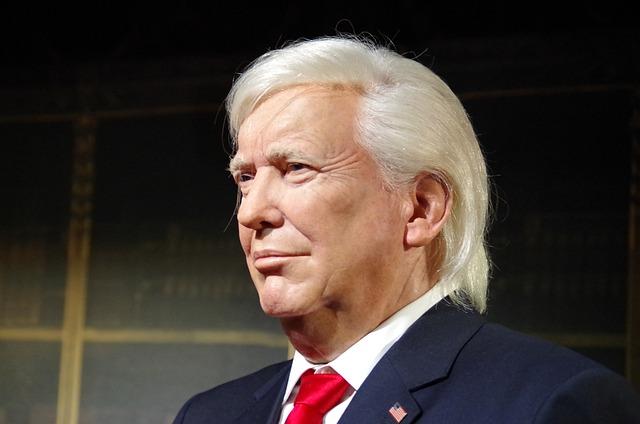Title: The Ripple Effect: How Trump’s Tariffs Could Impact Developing Economies Globally
As the dust settles on the ongoing trade tensions between the United States and its global trading partners, an often-overlooked aspect is beginning to emerge: the far-reaching consequences of President Donald Trump’s tariff policies on developing economies. While the focus has predominantly been on the direct impacts on the U.S. and China, experts warn that nations not directly involved in the trade war are also at risk of experiencing significant economic fallout. From fluctuating commodity prices to disrupted supply chains, the cascading effects of a tariff-laden environment threaten to undermine growth and stability in vulnerable regions. In this article, we explore the intricate web of trade relations and how tariffs, designed to protect American interests, could inadvertently stifle development opportunities for nations around the world.
Impact of Trump’s Tariffs on Global Supply Chains and Developing Economies
The imposition of tariffs by the Trump administration, primarily aimed at China, has had far-reaching consequences beyond the immediate bilateral trade relations. Developing economies, often reliant on global supply chains, have found themselves caught in a web of escalating costs and disrupted trade routes. Countries like Vietnam and Bangladesh, which have seen a rise in manufacturing opportunities as companies look to diversify, are also feeling the ripples of higher tariffs that force businesses to reconsider their sourcing strategies. Increased costs can lead some manufacturers to cut back on production or even relocate to regions with more favorable trade terms, potentially stalling economic growth in these developing nations.
Furthermore, the cascading effects of these tariffs can lead to volatile market conditions that are particularly damaging for smaller economies. As demand shifts and trade flows are altered, many developing countries face challenges such as:
- Increased import costs for raw materials
- Reduced export opportunities as major markets adapt to new tariffs
- Increased uncertainty in foreign investment
The potential slowdown in global economic growth due to tariff-induced tensions may reduce foreign consumer markets, thereby impacting domestic industries in developing nations reliant on exports. This interconnectedness underscores the vulnerability of these economies, revealing how even nations not directly involved in the trade war can suffer significant consequences from policies enacted thousands of miles away.
Analyzing Economic Vulnerabilities in Non-Participant Countries
The implications of tariffs extend far beyond the nations directly involved, as countries not participating in trade disputes are increasingly finding themselves caught in the crossfire. For many developing economies, the ripple effects can be profound, especially when supply chains are disrupted or when tariffs lead to increased prices on essential goods. This scenario particularly affects nations reliant on exports, which can experience a significant downturn in demand for their products as developed countries like the U.S. shift their purchasing patterns in response to altered trade dynamics.
Furthermore, currency fluctuations and inflation can threaten the stability of these vulnerable economies. As tariffs create uncertainty, investor confidence may wane, leading to diminished foreign direct investment and adverse impacts on local currency values. This phenomenon is often exacerbated by a dependence on commodities where prices can be volatile and directly influenced by global economic conditions. The interconnectedness of the global economy means that even countries not directly engaged in tariff disputes must brace for the potential backlash of economic policies determined thousands of miles away.
Strategic Recommendations for Mitigating Adverse Effects on Emerging Markets
To address the potential negative repercussions of tariffs imposed by major economies like the United States, policymakers in developing nations should consider a multifaceted approach aimed at enhancing their economic resilience. First, diversifying trade partnerships can help emerging markets reduce their reliance on any one country. By seeking new markets for exports, countries can mitigate the impact of tariffs on their economies. Additionally, establishing regional trade agreements can foster collaboration and protect mutual interests among neighboring states.
Furthermore, it is essential for governments to invest in domestic industries that can thrive independently of global supply chains heavily influenced by tariffs. This includes focusing on areas such as:
- Agriculture: Supporting local farmers to enhance food security and export capabilities.
- Technology: Encouraging innovation and entrepreneurship through investments in education and infrastructure.
- Manufacturing: Promoting local production to fulfill both domestic demands and export potential.
Collaboration with international organizations can also provide both financial and technical support for these initiatives. In addition, implementing smart fiscal policies that encourage investment in key sectors will ensure that emerging economies are better positioned to weather the storms caused by fluctuations in global trade dynamics.
In Conclusion
In conclusion, the ramifications of Trump’s tariffs extend far beyond the borders of the United States and China, impacting a diverse array of developing economies that may not even be directly engaged in the trade war. As global supply chains become increasingly interconnected, the ripple effects of such protectionist measures can stymie economic growth, exacerbate poverty, and disrupt critical trade relationships for nations worldwide. As countries strive to navigate this complex landscape, it becomes essential for policymakers to adopt adaptive strategies that mitigate the adverse effects of tariffs while fostering sustainable economic resilience. The stakes are high, and the lessons learned from this escalating conflict will shape international trade dynamics for years to come. The world watches closely as the unfolding narrative continues to evolve, reminding us that in today’s interdependent economy, the consequences of domestic policy decisions can reverberate across continents.









